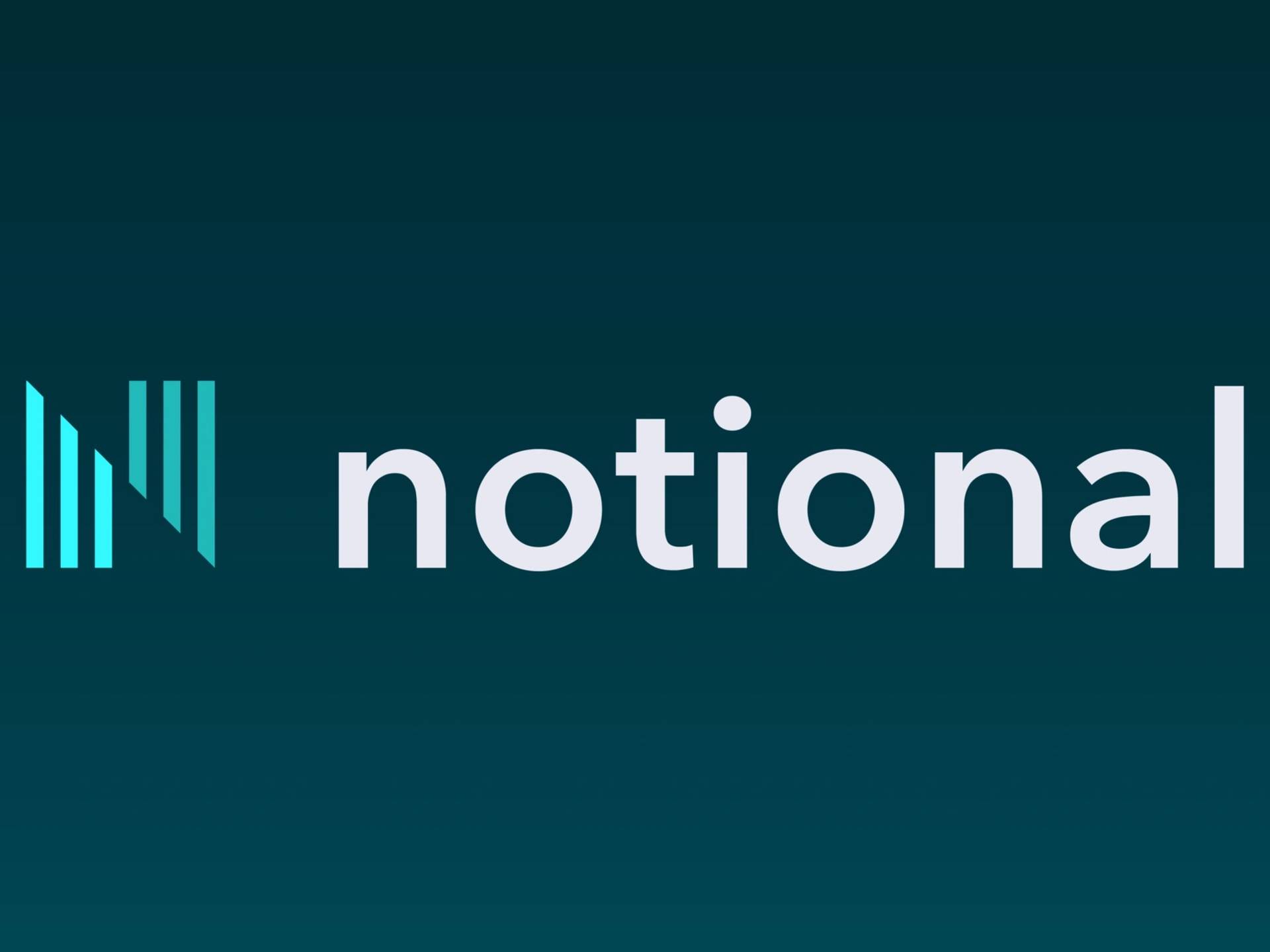위키 구독하기
Share wiki
Bookmark
Notional Finance
IQ AI를 발표했습니다.
Notional Finance
Notional Finance is a protocol on Ethereum that facilitates fixed-rate, fixed-term crypto asset lending and borrowing through a financial instrument called fCash. [1][2]
Overview
Founded by Teddy Woodward[13] in 2020, Notional is a decentralized protocol for fixed rate, fixed term lending, and borrowing of cryptocurrency assets on Ethereum. Users can lend or borrow stablecoins at fixed interest rates for terms of up to six months using a variety of assets as collateral. [3]
Notional achieves fixed-rate lending via a primitive called fCash, which is redeemable for an underlying currency like DAI upon the fCash token’s maturity date. Notional operates specialized liquidity pools that allow users to trade cash for fCash efficiently and vice versa. The exchange rate that a user receives on their trade implies a fixed interest rate from the time of trade until the fCash token’s maturity. [3]
Products
Lending
Variable Rate Lending
Variable-rate lenders earn returns by lending to over-collateralized, variable-rate borrowers. Variable rate lending provides users with a passive way to earn interest with free redeemability and no impermanent loss risk. [5]
Fixed Rate Lending
Lending at a fixed rate on Notional involves purchasing fCash tokens from its fixed-rate liquidity pools. These ERC-1155 tokens are redeemable at maturity for their face value. For example, 100 fUSDC can be exchanged for 100 USDC on its maturity date. The amount of fCash received exceeds the amount lent, representing the fixed interest earned over the period until maturity. [6]
Providing Liquidity
When users provide liquidity on Notional, they deposit underlying and receive nTokens in return. nTokens are ERC-20 tokens that represent a share of the liquidity in Notional's fixed-rate liquidity pools. [7]
Leverage
Leveraged Vaults
Leveraged vaults are whitelisted vaults that execute specific DeFi yield strategies. Users can earn leveraged returns because Notional allows users to borrow up to 10x+ their initial capital and deposit their initial capital + borrowed funds into the vault to earn yield. Users can earn high returns if the yield from the strategy is greater than the cost the user paid to borrow. [8]
Leveraged Lending
Leveraged lending means borrowing at one rate in a currency (like USDC) and lending at a different rate in that same currency. Notional allows users to use the loan as collateral for the debt which enables them to use a lot of leverage. Leveraged lending allows users arbitrage Notional's interest rates within a single currency by borrowing at a low rate and lending at a higher rate. [9]
Leveraged Liquidity
Leveraged liquidity means providing liquidity (minting nTokens) and then borrowing against that liquidity in the same currency to provide more liquidity. Notional allows users to use nTokens as collateral for debt which enables them to use a lot of leverage. [10]
Borrowing
Variable Rate Borrowing
Notional enables borrowing against cryptocurrency with overcollateralized loans. Borrowers must deposit collateral, and the interest on borrowed amounts accrues at a variable rate. [11]
Fixed Rate Borrowing
Notional provides the option for fixed-rate borrowing against cryptocurrency. All loans are overcollateralized, requiring collateral deposits. When borrowing at a fixed rate, borrowers select a maturity date and lock in an interest rate that remains unchanged until the loan matures. [12]
fCash
fCash tokens are similar to zero-coupon bonds. They are defined by a currency type and a maturity date. At maturity, fCash can be redeemed on Notional for its currency type. Any time before maturity, fCash can be transferred or traded. In other words, fCash tokens represent specific amounts of currency at specific future dates. [4]
fCash powers fixed-rate borrowing and lending on Notional. It allows the protocol to keep track of lenders' claims on assets in the future and borrowers' obligations to repay their debts. [4]
NOTE
$NOTE is an ERC-20 token that governs the Notional protocol. NOTE holders can propose, vote on, and implement changes to Notional system parameters and smart contracts. Each NOTE holder gets one vote per NOTE that they hold. [14]
NOTE holders are responsible for managing the Notional on-chain treasury, setting risk and collateralization parameters, and voting on any proposed upgrades to the Notional smart contracts. [14]
Investors
- Pantera Capital
- Spartan
- Coinbase Ventures
- Parafi Capital
- Nascent
- Ideo Colab[1]
잘못된 내용이 있나요?
